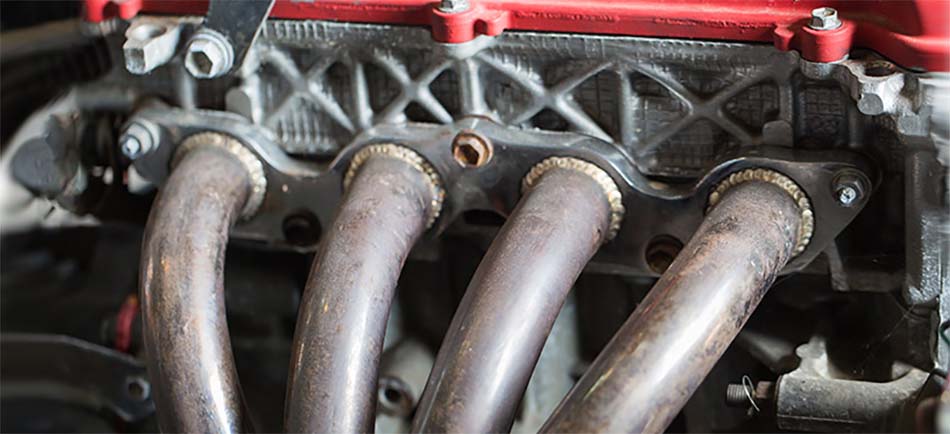The exhaust manifold is a part of an engine’s exhaust system that connects to the cylinder head and collects exhaust gasses from the cylinders. The purpose of an exhaust manifold is to direct the hot gasses from each cylinder into one pipe that leads to the catalytic converter. Exhaust manifolds are made out of metal and often have multiple runners or tubes for each cylinder.
How Hot Does An Exhaust Manifold Get?
The temperature of an exhaust manifold can vary depending on many factors, such as engine size, air/fuel mixture, load on the engine, used materials, etc. Generally speaking, an exhaust manifold can reach temperatures between 400-800 degrees Celsius (750-1470 degrees Fahrenheit). At high revs and under heavy loads, these temperatures can even exceed 1000 degrees Celsius (1800 degrees Fahrenheit). This extreme heat can cause warping in steel manifolds over time which could lead to leaks in the future if not taken care of properly. Also see here best cold air intake for Ford Explorer.

Keeping Your Exhaust Manifold Cool
Due to its high temperatures, it’s important to keep your exhaust manifold running cool if you want it to last longer and perform better. The best way to do this is to make sure that the exhaust system is working correctly and efficiently. This means having a good air/fuel mixture, proper fuel injection timing, and a well-insulated exhaust system. If you have an old or corroded manifold, it’s important to replace it with a newer one in order to keep your engine running cool.
Conclusion
Exhaust manifolds get hot due to the extreme temperatures of engine exhaust gases. Temperatures can range from 400-1000 degrees Celsius (750-1800 degrees Fahrenheit). To prevent damage in your exhaust manifold and ensure that it’s running properly, it’s important to keep it well maintained with proper air/fuel mixture, fuel injection timing, and insulation. Additionally, if you have an old or corroded manifold, replacing it with a newer one can help keep your engine running cool and make sure everything is working optimally.



